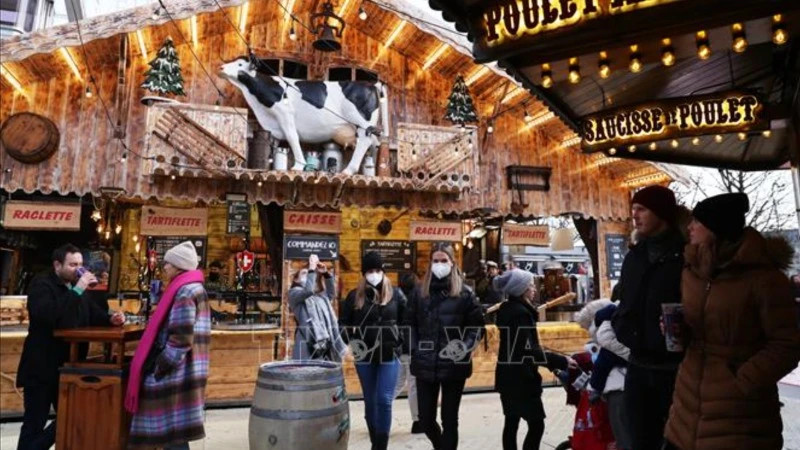Europe's stability in the past year has been seriously threatened, starting with a wave of protests related to the European Green Deal in the first months of 2024. Farmers in Poland, Spain, Greece, France, Germany, and Italy took to the streets to protest the many burdens on their shoulders, from soaring production costs and energy prices to strict regulations on pesticide use.
They said they felt “suffocated” by the government's management policies, as there were many overlapping regulations that created complicated administrative procedures, especially the provisions according to the standards of the European Green Deal.
The dissatisfaction of a part of the population with the management policies is partly the cause of the “quake” in Europe in mid-2024.
The results of the European Parliament (EP) elections held in June 2024, along with a number of EU country elections, have shaken the political scene of the Old Continent, with a strong rise of right-wing parties threatening to shake the unity of the EU.
At the EP, two right-wing groups, the European Conservatives and Reformists (ECR) and the Patriots for Europe (PfE), account for a total of more than 22% of the total 720 seats, employing significant influence on policy.
In fact, far-right parties such as RN in France, AfD in Germany, and FPO in Austria have made many commitments and policies that hit the psychology of a portion of the people. The prospect of economic growth is not optimistic, causing more and more young people in Europe to turn to support far-right parties.
The chaotic political situation in France and Germany in the past year has also threatened the position of the Old Continent in the international arena. In France, Francois Bayrou has just become the fourth person to sit in the "hot seat" as the country's prime minister in 2024. This veteran centrist politician is facing many difficult tasks to get the country out of the political crisis, including curbing the budget deficit.
France's political instability has also raised doubts about whether Mr. Emmanuel Macron will complete his second presidential term, which ends in 2027.
As Donald Trump prepares to enter his second term as US President and may introduce trade policies that are detrimental to the EU, Europe's economic outlook is said to be quite bleak, especially as the two economic pillars of Germany and France are facing storms.
Meanwhile, German politics recorded new developments with the parliament voting for the minority government at the request of German Chancellor Olaf Scholz.
The result was not unexpected, with 207 expressing confidence in the chancellor, 394 votes against, and 116 abstentions, Chancellor Scholz's Government did not receive a majority of votes and Chancellor Scholz had to ask German President Frank-Walter Steinmeier to dissolve the National Assembly to hold early elections.
In the context of Donald Trump preparing to enter a second term as US President and possibly introducing trade policies that are disadvantageous to the EU, Europe's economic outlook is considered quite bleak, especially when the two economic pillars of Germany and France are facing storms.
France's central bank has downgraded its 2025 growth forecast to 0.9% from 1.2%. Meanwhile, the German Central Bank slashed its growth forecast for next year to 0.2 percent, from the 1.1 percent rate it had predicted in June.
Europe enters 2025 with a series of complex challenges such as the risk of trade tensions with the US, stagnant economic growth, and the shaky Franco-German axis affecting the EU's international position.
Experts do not rule out the possibility that the political crisis in Germany and France will spread to other countries in the EU.
















